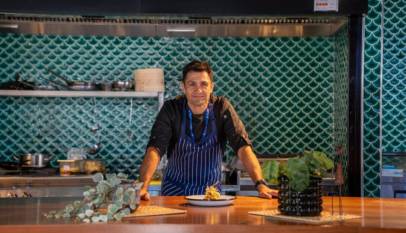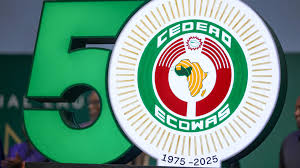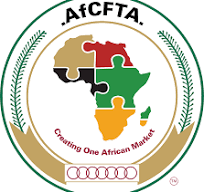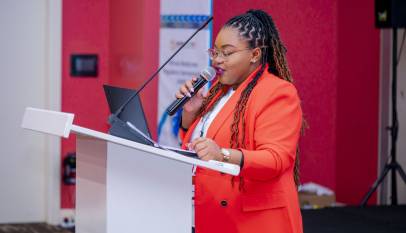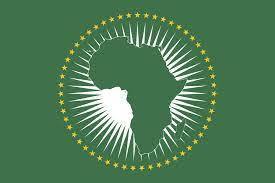“Political, economic factors fueling crises on the Plateau”
Clement Iornongu is the Executive Director of the Jos-based International Centre for Peace, Charities and Human Development, INTERCEP, working to ensure peaceful coexistence between the inhabitants of conflict-prone Plateau State in northcentral Nigeria. He speaks to African Newspage about their efforts
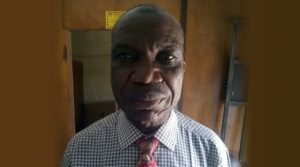
How has it been trying to minimize conflict in the volatile Plateau state through INTERCEP?
Our vision is to ensure the minimization of conflicts in the society through advocacy for the promotion and protection of human rights, we have multiple of crises and conflicts today because human right of the citizens is not being protected. So, once human rights are infringed upon, it results into conflicts but the more people become aware of their fundamental rights as well as the need to respect the rights of their neighbors the more peace is preserved. But we are also aware that peace cannot be maintained if there is poverty in the society so we introduced some poverty reduction measures in the environment we work including skills acquisition programs and capacity building for our stakeholders, basically women, youth and children which brings together people of diverse religious
beliefs, Muslims and Christians, and they interact in our skills acquisition centers and have been able to live pleasantly alongside one another.
Plateau state is a hotbed for violent ethno religious conflicts in Nigeria which has seen relative peace in recent times. To what extent can you link this to the efforts on local and international NGOs like yours?
Of course, crisis in Plateau State is most unfortunate and it is because of so many factors including economic, political and social and religious factors all of which contribute to the incessant conflicts in the state. So, when we realized these we started interventions towards peace in Plateau state and knowing that we cannot do it alone, we work with other stakeholders.
We therefore belong to a network called Plateau Peace Practitioners Network where we work together and marshal out activities that will entrench peace in the various communities. We carry out community outreaches to stakeholders, community leaders, religious leaders and
impress on them the need to leave in peace since without peace there will be no development in the Plateau. We approach this neither from religious nor political perspective, instead from human rights perspective; we show people the need to look at each other as human beings and not from religious perspective.
Since we all agree that we descended from the same human lineage, from Adam; whether we are Muslims or Christians. So, our peace building campaign is approached from human rights perspective, teaching people the need to leave in peace rather than at war with another.
To what extent do you think poverty contributes to the ethno-religious conflicts in Plateau state?
Poverty is dehumanizing, it marginalizes people which make them prone to being used as pawns during conflicts. Conflicts merchants can simply dole out little money and drugs to street urchins to cause havoc because the merchants benefit from the crises. Again, economic
factors also come into play; the quest for the control of resources including land particularly around Jos is also a contributing factor.
This is because the Hausa-Fulanis who are supposedly settlers are the most enterprising and were investing in areas of economic advancement whereas the supposedly indigenes were much more interested in social activities that do not contribute to economic advancement. So,
suddenly the indigenes wake up to find their land have been taken over by the settlers which trigged off most of the conflicts we experienced in Plateau state.
There is this belief that politicians in Nigeria exploit the country’s ethno-religious fault lines to divide the masses and ensure they keep fighting each other while they perpetuate themselves in power. How much is that belief true in relation to the Plateau scenario?
To some extent religion has been used as a factor to fuel conflicts, one of the major crises that took place in Plateau in 2001 was around the appointment of a supposedly non-indigene to a very sensitive position. That was used to stir up religious sentiment to cause division within the people knowing fully well that an average Nigerian is a very religious person as such by playing on their religious sensitivities you will definitely get them to react. So, politicians use crises to create votes for them so they can perpetuate themselves in power.
Plateau State has enjoyed relative peace for some time courtesy of the activities of various networks of non-governmental organizations in the areas of peace building and conflict prevention, like yours. What do you think must be done to sustain peace in the state?
There is need for continued enlightenment and awareness and education on peaceful coexistence, on the need to leave peacefully with one another. There is need for continued enlightenment for people to see religion as an instrument that fosters cordiality rather than bring about divisions. These are the approaches to the various interventions by local and international organizations which are responsible for the relative peace we are enjoying now. Moreover, the present government under His Excellency, Governor Simon Lalong, is trying to ensure that peace is maintained on the Plateau by ensuring that there is fairness and equity in the distribution of key political positions, which were causing friction. He has been able to
intervene and provided a sense of belonging people that were hitherto alleging marginalization. That has to some extent also created a level of integration of these groups who felt marginalized before.
And there are also assurances from various stakeholders on the Plateau that as long as there is justice, equity and fairness, we are never going to witness violent conflicts in Plateau again. So, we are building on that to always ensure there is equity, justice and fairness in access to economic resources and political positions so that we can continue towards sustaining this relative peace.


